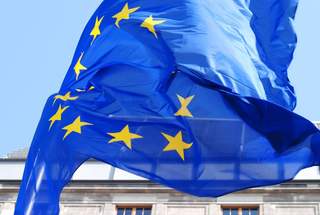
© AdobeStock
European integration: dare more Europe
European integration has brought us great achievements for which we are envied across the world: freedom, democracy, the rule of law, peace and functioning mechanisms for reconciling social interests. None of this materialised out of thin air. Instead it is the result of the great European idea of peace and progress, which is much more than just the creation of a barrier-free single market.
In the 21st century, globalisation is constantly presenting us with new political and economic challenges. Only together with our European partners can we shape world politics and the world economy. Our national interests can only be effectively represented through European cooperation, which is why we need a strong European Union that is capable of taking action. Germany, whose share of the world's population is now only around one percent, can do little alone in this integrated world. Those who promote renationalisation as the better alternative for Germany are misleading the people and are putting jobs at risk.
The future task: Global competitiveness
Europe has the potential to seize the opportunities of globalisation. The EU provides the largest single market in the world and a stable single currency, which is the foundation for a prosperous economy. On this basis, Europe has developed a unique division of labour. Our success on the world markets is based on a strong production network that spans across national markets and industries. Regions and companies specialise and work together in strong European value chains. Meanwhile, the countries of Central and Eastern Europe are also strongly involved. The centre of this network is Germany. Industry therefore has a strong integrative function for Europe. The further integration of European member states into a common single market is largely driven by industry.
For a strong Europe
Having said that, Europe will only be able to deliver on its promise of prosperity if its economy is globally competitive. Though Europe’s share of the world’s population is only seven percent, 50 percent of global spending is generated within the EU. To afford this, we need a framework that enables growth and allows our businesses to compete on world markets.
In Brussels and Berlin, BDI works for a Europe that can act and is competitive. Together with the EU institutions, our European umbrella organisation BusinessEurope and our European partner associations, we work to shape the future of Europe. BDI provides impulses for growth-friendly EU policies and is resolutely committed to furthering European cooperation against national protectionism and unilateralism.



